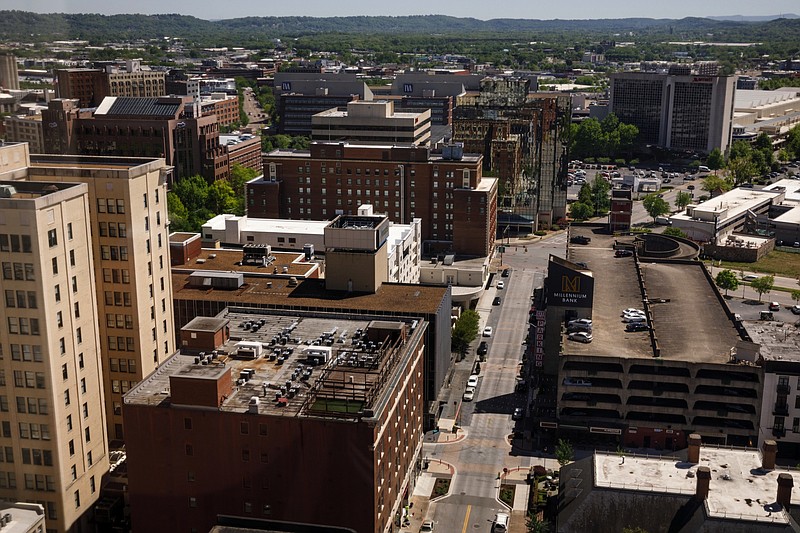If a business improvement district (BID) is to become a reality in downtown Chattanooga, the process probably needs to start over.
By that, we don't mean proponents of bringing new services to a designated area of the city's central core through a self-imposed assessment fee need to throw out the planning they did to reach the ordinance that failed to get a second from the Chattanooga City Council earlier this week.
But, to hear city council members and businesspersons, the process to create a BID in the first place was not inclusive enough, felt heavy-handed, did not have enough economic impact analysis from other cities, and did not require enough checks and balances.
To be fair, River City Company, which conceived the BID plan following a feasibility study, said it had gotten the support of owners of 67% of the assessed value of property within the designated BID area, and more than 50% of all property owners. And a first reading of the ordinance had passed the city council last week, though narrowly.
But Tuesday's discussion went off the rails, with the public throwing verbal brickbats at the proposal (and others supporting it) and council members peppering the ordinance with amendments. When at the end of the discussion, Councilman Anthony Byrd made a motion to approve the ordinance, it died for lack of a second.
Kim White, president and chief executive officer of River City Co., told Times Free Press editors and reporters in April that downtown property owners had an "appetite" to invest in the downtown core and wanted to see improvements made outside of those provided by the city.
Such improvements, through a BID, would have included beautification, landscaping and the presence of ambassadors to offer information, assistance and safety escorts.
However, only property owners had an official say in whether they supported the proposal, property owners would have made up the majority of a potential BID board, and property owners would determine if and how the annual fees for the BID would be passed on to business or residential tenants.
Tenants, even long-term ones, told this page they felt left out.
And what would keep property owners, they wondered, from beautifying and landscaping their own places, if they so desired?
Council members, through amendments to the ordinance, also suggested improvements.
Two - an annual audit and adherence to the state's open meeting acts - seem particularly needed. Another, allowing some property owners to opt out, needs more study. An alternative to that might be a sliding scale for the fees, charging small business owners (who also own their property) or those with property producing no income less than those of larger business (and property owners).
Another amendment would have given the city council the right to confirm the BID board's initial appointees.
As Chattanooga City Councilwoman Carol Berz pointed out, Tennessee law - instead of the individual municipality - often dictates how such a district should operate. Thus, BID planners did not have all the freedom they would have liked in crafting the BID.
If the process does start over, using the skeleton of the previous proposal as an outline, we suggest renters be included in all planning and future board decisions, that return-on-investment statements from other cities be researched and that the Hamilton County legislative delegation be sought if it was thought state laws could be changed in order to effect a better BID for the city.
We don't believe River City Co. and any supportive businesses wanted to be heavy handed with the BID proposal and only wanted, as White told the Times Free Press "to up our game" and put the "sparkle and shine back on some areas."
Unfortunately, when people who would be affected don't feel like they've had enough say in what will affect them, some resentment is bound to occur.
The once proposed new sewage treatment plant off Mahan Gap Road in the county last year was a similar example. It was planned with only the best motives - future growth, flexibility and environmental concerns - in mind. But the public didn't feel part of the selection process of a site, did not feel other alternatives had been explored and felt the whole process was being rushed.
They made their feelings known, planners and Hamilton County commissioners voted it down, and now Water and Wastewater Treatment Authority and county officials are considering different alternatives.
We understand why River City Co. and other supporters of a BID desired an even brighter downtown, with helpful ambassadors offering tourists and locals information and assistance, and we hope a new process - if one is sought - can create a more inclusive, fairer and more effective business improvement district for all of those who own, rent and visit it.
